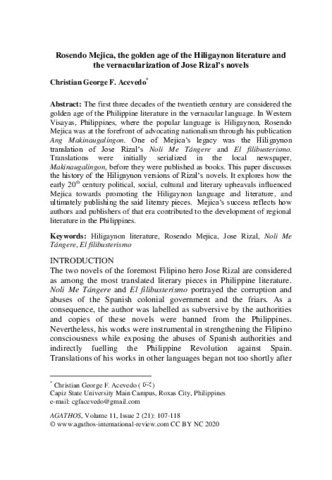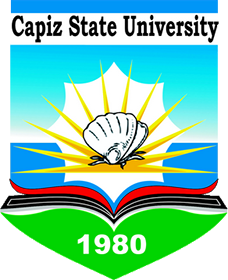Rosendo Mejica, the golden age of the Hiligaynon literature and the vernacularization of Jose Rizal’s novels

Associated content
www.agathos-international-review.comDate
2020Author
Metadata
Show full item recordAbstract
The first three decades of the twentieth century are considered the golden age of the Philippine literature in the vernacular language. In Western Visayas, Philippines, where the popular language is Hiligaynon, Rosendo Mejica was at the forefront of advocating nationalism through his publication Ang Makinaugalingon. One of Mejica’s legacy was the Hiligaynon translation of Jose Rizal’s Noli Me Tángere and El filibusterismo. Translations were initially serialized in the local newspaper, Makinaugalingon, before they were published as books. This paper discusses the history of the Hiligaynon versions of Rizal’s novels. It explores how the early 20th century political, social, cultural and literary upheavals influenced Mejica towards promoting the Hiligaynon language and literature, and ultimately publishing the said literary pieces. Mejica’s success reflects how authors and publishers of that era contributed to the development of regional literature in the Philippines.



